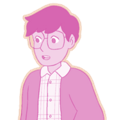Leito a publié une critique de Klara et le Soleil par Kazuo Ishiguro
Klara et le Soleil
3 étoiles
Je ne sais pas trop quoi penser de ce roman. Je me suis un peu ennuyé pendant une bonne partie du livre, où certains concepts clés ne sont pas explicités et on nage juste dans les considérations et remarques d'une AA : Amie Artificielle, à mi-chemin entre les remarques très pertinentes et précises et un décalage, une mauvaise interprétation des sentiments humains. Le procédé est intéressant, mais on en attend un peu plus pour avancer dans les pages, d'autant que le ton objectivo-naïf n'est pas des plus engageants.
Il y a tout de même quelques points très intéressants, comme la manière dont Klara, l'androïde, perçoit l'espace dès qu'elle est désorientée, tout en "boîtes" plis ou moins grosses selon l'importance signifiante de l'élément qui s'y trouve. Un concept difficile à rendre en images (il m'a fallu plusieurs récurrences avant de comprendre de quoi on parlait), mais qui réussit indéniablement à …
Je ne sais pas trop quoi penser de ce roman. Je me suis un peu ennuyé pendant une bonne partie du livre, où certains concepts clés ne sont pas explicités et on nage juste dans les considérations et remarques d'une AA : Amie Artificielle, à mi-chemin entre les remarques très pertinentes et précises et un décalage, une mauvaise interprétation des sentiments humains. Le procédé est intéressant, mais on en attend un peu plus pour avancer dans les pages, d'autant que le ton objectivo-naïf n'est pas des plus engageants.
Il y a tout de même quelques points très intéressants, comme la manière dont Klara, l'androïde, perçoit l'espace dès qu'elle est désorientée, tout en "boîtes" plis ou moins grosses selon l'importance signifiante de l'élément qui s'y trouve. Un concept difficile à rendre en images (il m'a fallu plusieurs récurrences avant de comprendre de quoi on parlait), mais qui réussit indéniablement à nous mettre en empathie avec l'androïde, face à quelque chose de trop complexe pour que notre cerveau l'interprète correctement.
Globalement, Ishiguro a peu éveillé mon intérêt pour ses personnages ou les mécaniques qui sous-tendent ce futur, même si je sais que ce n'est pas l'objectif recherché ici, où ce sont les questions "métaphysiques" amenées par Klara et le rôle qu'on veut lui assigner qui sont le véritable sujet (et même de ce côté là, je n'ai pas été exposé à des choses particulièrement innovantes). D'autres lecteurs sauront y trouver leur bonheur, c'est tout de même un livre doux avec de beaux moments.








